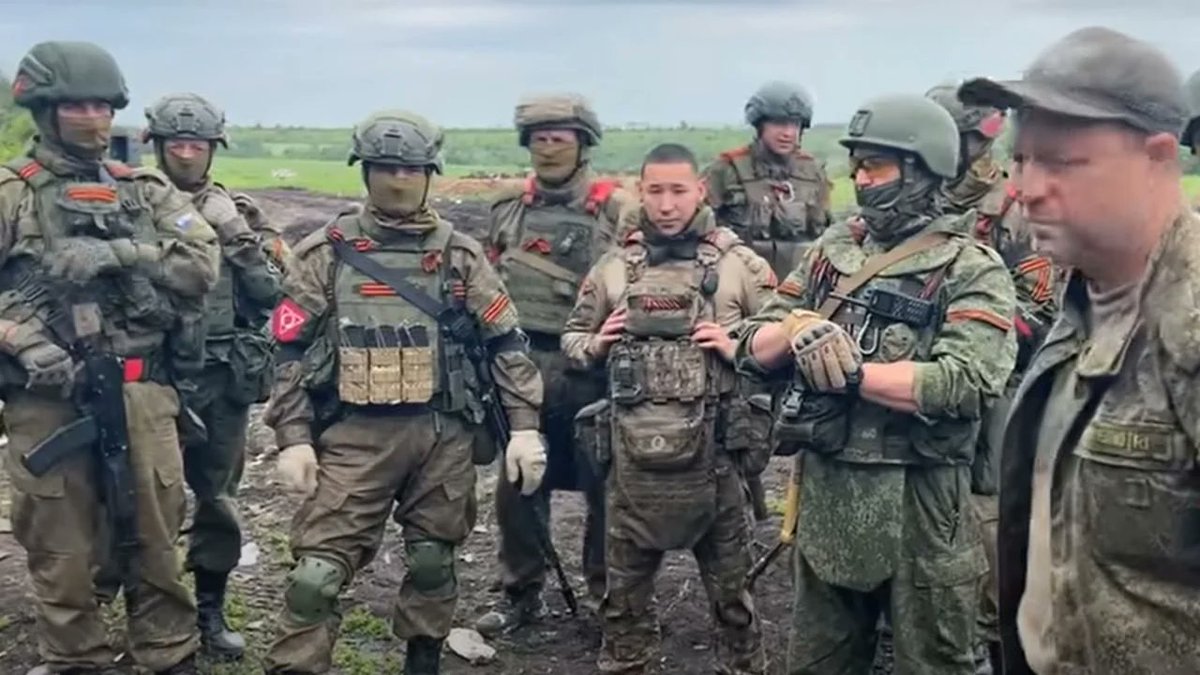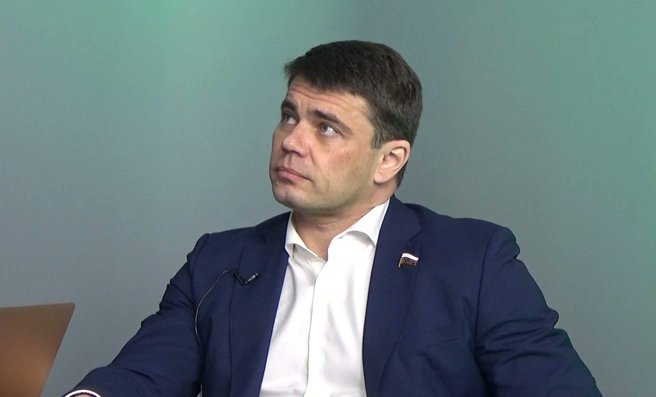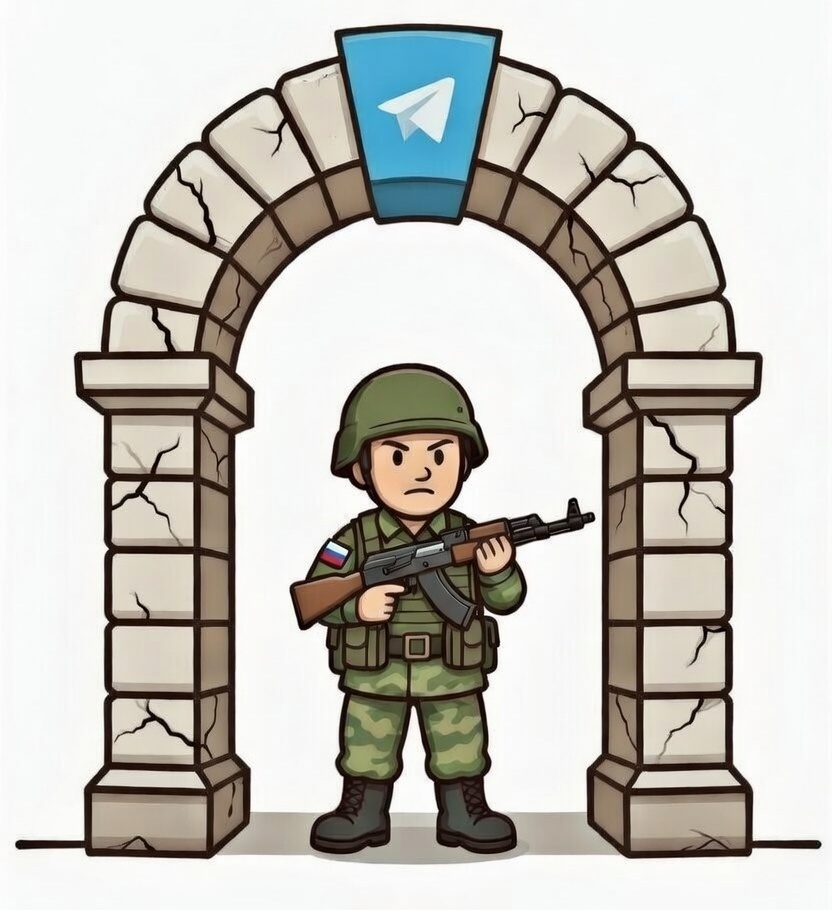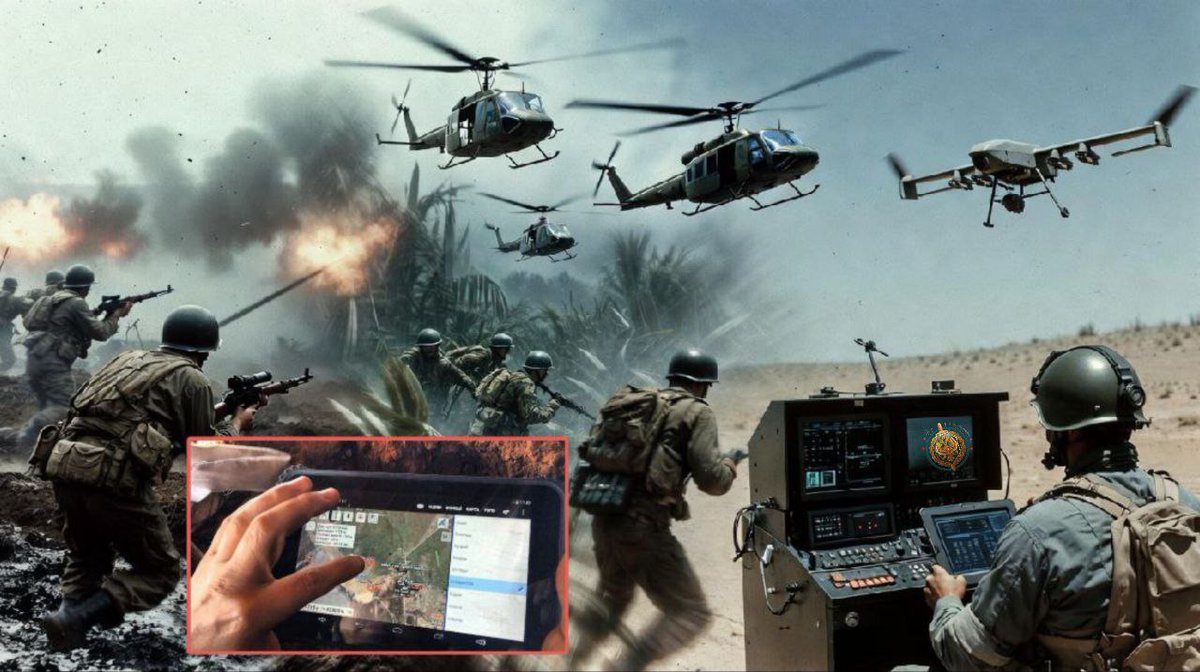1/ On 24 February 2022, Russia invaded Ukraine. This 🧵 highlights the first-person account of Russian paratrooper Pavel Filatyev, who was in the invasion force that entered Ukraine from Crimea, captured Kherson and unsuccessfully fought to reach Mykolaiv. 

2/ For the first part of Filatyev's story, covering his first six months with the Crimea-based 56th Guards Air Assault Brigade/Regiment before the war, see the thread below:
https://twitter.com/ChrisO_wiki/status/1560022545356791810
3/ Filatyev's experiences with the regiment were so disillusioning that he sought unsuccessfully to make an early exit from his contract with the Russian Army. He had already written a letter to the Russian Ministry of Defence complaining about his unit's unfitness for combat.
4/ He was also worried about what his unit's "anarchy" said about the state of the rest of the army. "And this is in the airborne forces, the elite, the commander-in-chief's reserve! It is scary to imagine how things will be in other units." This turned out to be prescient.
5/ In mid-February, Filatyev's unit and many others based in Crimea were sent to a training range at Staryi Krym, not far from their base in Feodosiya. He realised that something was up from the news and from the fact that even sick soldiers were being sent there for training. 

6/ Filatyev and his comrades did not know what was going on. "Rumours and information varied, from Ukraine and NATO attacking Crimea and us simply having to gather at the borders to prevent this, to Ukraine attacking the [Donetsk and Lugansk People's Republics]."
7/ He assumed that he would be sent to the Donbas as "it seemed logical to me that [we] would carry out an operation under the guise of peacekeepers", defending the region while a referendum was being held to annex "the woeful Donbas" to Russia.
8/ Filatyev postponed his earlier intention to quit the army. He "thought now that something was brewing, refusing would be shameful, tantamount to chickening out ... I do not know what drove me, patriotism or unwillingness to back down."
9/ The situation at the training range dismayed Filatyev. His entire company of 40 men shared one tent. "In the tent, bunks, a potbelly stove. Even in Chechnya life was better organized. The food in the canteen is even worse than in the garrison." There was nowhere to wash. 

10/ Other units had it worse. Some "had nothing to heat stoves in February, there was no place to wash, because of which people went into the sea in winter". Sickness was rife. Hospitals became clogged with patients, leading to "an order ... to ban them going to hospital."
11/ Equipment was also in short supply. Filatyev and several others in his unit "did not have a sleeping bag, no camouflage suit, [body] armour, helmets, etc". They ended up taking turns to share equipment.
12/ Filatyev's commander, who refused to join the rest of the company in the tent, was unsympathetic. "I asked him where my sleeping bag and 'Warrior' kit were, to which he replied that he was not there [at the time], so where to sleep and where to get ammunition is my problem."
13/ Filatyev was given a rusty machine gun with a broken belt, which jammed after the first few shots. He spent a long time oiling and repairing it. On 20 February, his regiment – now numbering 500-600 men – assembled and prepared to move out towards an unknown destination. 

14/ Conscripts were meant to have stayed in the garrison, as deploying them to conflict zones is supposed to be illegal, but they were also among the invasion force. Filatyev later met one conscript who told him how he had been badly wounded in a 'friendly fire' incident.
15/ The conscript had been told that "you will not have to do anything, you are a signalman" in an artillery unit. He had evidently been promised he wouldn't be sent into battle. Which was technically true: it was his own side that had accidentally shot him.
16/ The Russians had plenty of weapons, but were haphazard about rations: "everyone got food and water as they wanted, our command doesn't care." By now, after some having spent up to a month on the range in freezing and squalid conditions, "everyone was dirty and exhausted".
17/ After handing in their mobile phones, the unit moved in convoy to the town of Krasnoperekopsk, where they spent three uncomfortable nights sleeping in their trucks. Although the trucks were supposed to have stoves, many did not work, forcing the men to sleep in the cold. 

18/ On 23 February, the day before the invasion, the divisional commander turned up "to congratulate us on this occasion and announced that our pay would be $69 a day from tomorrow." This was a major pay rise and signalled to Filatyev that "something
serious was going to happen".
serious was going to happen".
19/ Even at this late stage, with ammunition and grenades being issued and rumours that the force was going to attack Kherson, Filatyev believed such a prospect was "nonsense" and that the Russians would most likely go to the Donbas. He disbelieved that Kyiv would be targeted.
20/ Filatyev still did not even have basic equipment such as body armour or 'Warrior' (Ratnik) combat kit. Fortunately, his battalion commander was friendly to him, got him the missing equipment, and assigned him to mortars to get him out of conflict with his company commander. 

21/ The troops were still unaware of where they were going. Even the infamous Z symbol was kept secret until the last minute. Soldiers taped two horizontal white stripes to their vehicles on 19 February, and only added the diagonal of the Z hours before the invasion started.
22/ At 04:00 on 24 February, Filatyev awoke to the sound of rocket artillery. "I hear a roar, a rumble, a vibration of the earth, I feel a sharp smell of gunpowder in the air, I look out of the body [of the truck], throwing back the awning, I see that the sky has become bright...
23/ "To the right and left of our column the rocket artillery was working, powerful volleys of long-range guns were heard from somewhere behind us, the air felt anxious and buoyant, sleep vanished..."
24/ "I could not understand what was happening, who was shooting at whom and from where. Tiredness vanished along with the lack of food, water and sleep ... I couldn't fully understand what was going on, are we firing at the advancing Ukrainians? Maybe on NATO?"
25/ Nobody told him what was happening. "My level is that of a contract paratrooper, which is the level of a stallion being led to castration," Filatyev writes bitterly. He was simply expected to follow orders without explanation.
26/ "So it's the same with the army for a contract worker, go there, go there, good for you, go there now and at one beautiful moment it will fuck you up, [that's how] you've been trained."
27/ The Russian column passed through the town of Armyansk on the border between Crimea and Ukraine proper. Filatyev's truck, carrying a cargo of mortar rounds in crates, had no working brakes. Along the way it crashed once and endured other near-misses. 

28/ Filatyev saw "combat planes flying over us, followed by attack helicopters, explosions could be heard ahead, the air smelling of gunpowder. The picture was both fascinatingly frightening and disturbingly beautiful." Soon they crossed the border, passing a captured checkpoint.
29/ After some distance, they received an order to take combat positions. "We all rush out of the trucks and run to the sides of the road taking up fighting positions, some of us kneeling, some of us lying down, and some of us just standing because we don't want to get dirty."
30/ It was a false alert. They resumed their journey through Ukrainian villages with yellow-and-blue painted fences, past "sullen huddled lads and single old men baptizing our column" – making the sign of the cross, likely intended as a curse. 

31/ Even now, hours into the invasion, the commanders had still not explained what was happening and who they were fighting. "The soldiers in our column are also wondering where and why we are going, it can be seen on their tired and somewhat confused faces, but what to do?"
32/ As they drove on at "minimum speed" towards Kherson, Filatyev became alarmed at seeing an unusual-looking KAMAZ truck – possibly a command and control vehicle – near some seemingly abandoned-looking Soviet-era hangars, which had been disregarded by the advancing invaders.
33/ "My gut feeling told me of danger ... Logic said that the scouts and attack aircraft were ahead and if they didn't notice the oddity, then everything was OK. But I was wrong again, logic and the modern Russian Army are not compatible."
34/ As the trucks drove past, "indiscriminate shooting" broke out. The column was ordered to take combat positions again, this time for real. It was Filatyev's first taste of combat in the Ukraine war.
35/ In the next instalment, I'll cover Filatyev's description of the chaotic and disorganised Russian advance on Kherson and his experience of the fighting that preceded Russia's capture of the city. /end
(Original source in Russian is here if anyone is curious.) vk.com/doc365182800_6…
Part 3 is here:
https://twitter.com/ChrisO_wiki/status/1560725596765913089
• • •
Missing some Tweet in this thread? You can try to
force a refresh








